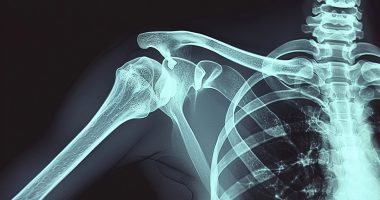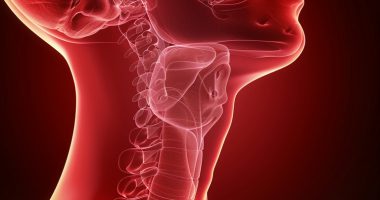Constipation
Definition
Constipation is a chronic disorder of bowel function accompanied by difficulty and delayed emptying or permanent failure of the act of defecation. It can be functional or organic, primary or secondary. It is manifested by increased intervals between acts of defecation, thickening of the stool, the feeling of incomplete emptying of the bowel, and the need for increased pushing and taking laxatives and diagnosis based on complaints, history of the disease, the data of examination and palpation of the abdomen, rectal examination, laboratory tests, and instrumental studies. Treatment – diet, laxatives, non-medication therapy.
General information
Chronic constipation is a complex of different symptoms, including a decrease in the frequency of defecation and marked difficulties in the process of defecation, detected for six months or more. It is a polyetiologic pathological condition and is considered in modern proctology as the most important social and medical problem. Specialists believe that 30-50% of adults and 5-20% of children in the USA and European countries suffer from chronic constipation of varying degrees of severity. The probability of chronic constipation increases with age.
Chronic constipation is characterized not only by an increase in the time interval between defecation but also by a decrease in the amount of fecal matter, increased density, dryness, and hardness of feces, as well as the feeling of incomplete emptying of the bowel after the act of defecation. In chronic constipation, there may be all of these signs or one or two of them, and the severity of one or the other may vary significantly.
Causese
Among the pathological conditions that provoke chronic constipation, various concomitant diseases are called:
- pathology of the upper digestive system (cholecystitis, gastritis, peptic ulcer disease);
- adhesions;
- polyneuropathy in diabetes;
- diseases and traumatic injuries of the CNS, accompanied by a disorder of nervous regulation of intestinal activity;
- obesity;
- portal hypertension;
- pulmonary emphysema;
- heart failure.
Chronic constipation can occur in some mental disorders, particularly depression. Stool disorders are often observed during gestation. This pathology is often diagnosed in the elderly and is associated with age-related slowing of the passage of intestinal contents and weakening of the muscles involved in defecation.
In the occurrence of chronic constipation of great importance is the formation of a vicious circle – a mutual combination and aggravation of several mechanisms underlying stool disorders. Among the mechanisms of development of chronic constipation – the inability to perform an act of defecation in conditions of stress, uncomfortable or unfamiliar environment, inaccessibility of the toilet, sedentary lifestyle, reactive delay of defecation in conditions of constant psycho-emotional stress, taking certain medications, etc.
Classification
Taking into account the causes and provoking factors, functional and organic chronic constipation are distinguished. Organic constipation, in turn, is divided into mechanical and proctogenic (inflammatory diseases of the colon) due to congenital malformations and acquired defects of the large intestine. Chronic constipation can also be classified as primary, secondary, or idiopathic.
- Primary constipation includes developmental anomalies of the large intestine and congenital disorders of innervation of this anatomical zone.
- Secondary constipation is considered chronic constipation due to diseases and injuries (traumatic, postoperative) of the large intestine, lesions of the higher parts of the digestive system, and other organs and systems. In addition, this group of constipation includes stool disorders when taking medications.
- Idiopathic chronic constipation includes constipation with insufficient motor function of the large intestine of unknown etiology.
Regarding the pathogenesis, mechanical, alimentary, and dyskinetic chronic constipation are distinguished.
- Alimentary constipation is caused by dehydration, reduction in food intake, and violation of the optimal composition (lack of crude fiber), resulting in a decrease in the volume of fecal matter.
- Mechanical chronic constipation is caused by mechanical obstacles to the passage of intestinal contents (tumors, narrowing of the intestine, etc.).
- Dyskinetic constipation develops with disorders of the motor function of the colon and is the most common type of constipation.
Symptoms of chronic constipation
The clinical picture is determined by the cause, duration, and severity of constipation. The main symptoms of chronic constipation are increased time intervals between acts of defecation, increased duration of the act of defecation, and pronounced difficulties in the process of defecation (increased pushing, the need to help themselves with their hands). Feces are dry and dense. Along with the above signs, patients with chronic constipation often have abdominal bloating, abdominal pain, a feeling of heaviness in the lower abdomen, and a feeling of incomplete emptying of the bowel after defecation.
Chronic constipation is characterized by gradual development. An important sign of constipation is a change in the individual rhythm and character of defecation. Emptying the bowel occurs less frequently, defecation requires more effort, and feces are harder and drier than before. Against the background of constant difficulty in discharging dry fecal masses after stool retention, in some patients with chronic constipation, diarrhea may occur, accompanied by the discharge of liquid feces with impurities of mucus.
There may be a deterioration of appetite, belching of air, and bad breath. Constant problems with defecation, abdominal discomfort, and other symptoms of chronic constipation negatively affect the psycho-emotional state and performance of patients. In the presence of the underlying disease provoking constipation, patients with chronic constipation show symptoms of the underlying pathology: pain in the pancreatic region, heartburn, nausea, and vomiting when the stomach is affected; shortness of breath, decreased breathing and barrel chest in pulmonary emphysema; shortness of breath, palpitations, heart pain and cardiac edema in heart failure, etc.
Diagnosis
According to modern concepts, chronic constipation is diagnosed when a patient has one or more signs of the disease for six months, with two or more of the listed symptoms detected within three months:
- A patient with chronic constipation has to push hard more often than 25% of defecations.
- Excessively hard feces appear more frequently than 25% of defecations.
- The patient feels incomplete emptying of the bowel more often than 25% of defecations.
- A patient with chronic constipation feels blockage in the anus more often than 25% of defecations.
- The act of defecation is performed less than three times a week.
In the process of diagnosing this pathological condition, the specialist takes into account that chronic constipation is not an independent disease but a manifestation of another pathology or a consequence of the peculiarities of the regime, diet, and lifestyle. Given this circumstance, the purpose of the diagnostic search is to identify the causes and predisposing factors for the development of constipation. During the examination, the doctor excludes drug-induced chronic constipation and constipation due to organic pathology of the intestine (Crohn’s disease, colorectal cancer, diverticulosis, malformations, and acquired anomalies of the colon).
The examination plan for a patient with chronic constipation includes:
- anamnesis collection (complaints and medical history);
- inspection and palpation of the abdominal area;
- a rectal exam;
- radiologic examinations (abdominal X-ray, irrigoscopy) and colonoscopy;
- tests: coprogram, stool analysis for hidden blood, bacteriological examination of stool;
- manometric techniques (anorectometry, sphincterometry).
Patients should consult a therapist, endocrinologist, cardiologist, pulmonologist, and other specialists, and laboratory and instrumental tests should be performed to detect diseases of other organs and systems.
Treatment of chronic constipation
Therapy of the disease is a difficult task due to the presence of a vicious circle and the habituation of patients to the constant use of enemas and laxatives. The treatment plan for chronic constipation includes the following areas: correction of diet, increase in physical activity, work with the psychological state, drug therapy, non-medication methods of stimulation of defecation, and activation of the depressed reflex to defecation. Specialists point out that the cheapest, most effective, and, at the same time, the most difficult tasks for a patient with chronic constipation in most cases are changing the psychological state, correcting diet and lifestyle, as well as stimulating the reflex to defecation.
If the above measures are ineffective or in addition to these measures in chronic constipation, prescribe drugs to regulate intestinal peristalsis, laxatives, probiotics, antidepressants, massage, and electrical stimulation of the sacral nerve. Laxatives are contraindicated in inflammatory bowel disease.
All these treatment options are available in more than 90 hospitals worldwide (https://doctor.global/results/diseases/constipation). For example, Sacral nerve stimulation can be done in 8 clinics across Germany (https://doctor.global/results/europe/germany/all-cities/all-specializations/procedures/sacral-nerve-stimulation).
Prognosis and prevention
The prognosis is determined by the cause of chronic constipation and the patient’s willingness to comply with the doctor’s recommendations. In many cases, lifestyle modification contributes to the formation of regular defecation. Prevention consists of timely treatment of causative diseases, refusal to abuse laxatives and enemas, sufficient physical activity, and compliance with the principles of a healthy diet.


